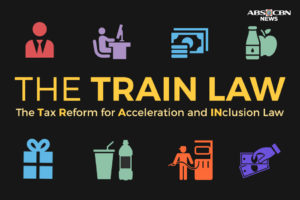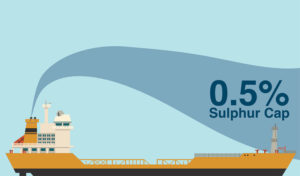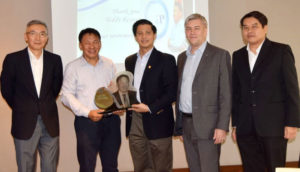Source: DOE Website
WORLD OIL PRICES (January 18-22, 2021 trading days)
Dubai crude has decreased week-on-week by almost US$0.50/bbl. Both MOPS gasoline and MOPS diesel have also decreased: gasoline by about US$0.65 per barrel and diesel by around US$0.30 per barrel.
Reasons for the Adjustment
-
With weak oil demand in Europe and the US, market analysts fear of renewed lockdowns in China could further weaken the demand outlook for oil and oil products.
-
A new outbreak of coronavirus in some Chinese cities has sparked fears that the country could experience another wave of the pandemic.
-
Chinese authorities have imposed mobility restrictions in affected cities, including Beijing, and have called on citizens to refrain from travel during the upcoming Lunar New Year holiday.
-
Thus, China’s oil demand to see a sharp month-on-month decline of 1.3 million b/d in February.
-
-
On the other hand, Algerian Energy Minister Abdelmadjid Attar said that global vaccination campaigns and the resumption of international air traffic will support oil prices within $55-$60/b in the near term, but OPEC will be closely watching for clearer signals from new US President Joe Biden on whether he will ease sanctions on Iran and Venezuela.
- Any relief in the sanctions could unleash crude volumes that would complicate the producer bloc’s efforts to rebalance the market amid a still fragile global recovery from the coronavirus pandemic.
-
Sentiment around gasoline demand is unpromising with COVID-19 infections and associated measures are trending upwards in Indonesia, Malaysia, Japan, and China.
-
Asia’s largest gasoline importer Indonesia is expected to import around 8 million barrels of gasoline in February as local demand was seen to have steady recovery through to the end of 2020.
-
But with daily infections recently surging to the highest on record, the government has been pushed into new lockdown measures covering Jakarta, the rest of Java, and Bali. Hence, the outlook for Indonesian demand remains uncertain in the near term.
-
-
The diesel market outlook appears more uncertain, with some sources saying that the sentiment could turn more bearish ahead of expectations of a slowdown in activity across large parts of the region ahead of the Lunar New Year holidays. The situation may further be compounded by still healthy gasoil export flows from China over February.
-
The conditions of low refinery runs, depressed demand, and closed arbitrage to Europe has left markets unresponsive to recent cold weather, which would traditionally be a positive driver for gasoil values (it being used as heating fuel).
-
Regional balances could begin to tighten when spring refinery maintenance season begin to kick in. Some refiners may opt to start turnaround earlier because of current weak margins and demand.
-
FOREX: Philippine peso appreciated week-on-week against the US dollar by P0.01 to P48.06 from P48.07 in previous week.
Other recommended reference sites:
• http://www.aip.com.au/pricing;
• http://www.indexmundi.com/commodities/?commodity=crude-oil-dubai
• https://www.quandl.com/data/ODA/POILDUB_USD-Dubai-Crude-Oil-Price
DOMESTIC OIL PRICES
These resulted to the year-to-date adjustments to stand at a net increase of P2.15/liter for gasoline, P1.55/liter for diesel and P1.50/liter for kerosene.
_______
For more information, call the
Department of Energy
Pricing: 840-2187
LPG: 840-2130
Fuels: 840-5669
SMS: (0915) 4469421
Email: oilmonitor@doe.gov.ph
Website: https://www.doe.gov.ph
 Enacted into Law on 19 December 2017 and took effect 01 January 2018, the Tax Reform for Acceleration and Inclusion (TRAIN Act) generally, was established to generate revenue to achieve the vision of the Duterte Administration for the country including eradication of poverty, create inclusive economic environments to open equal opportunities, achieve higher income country status and pave the way for simpler, fairer and efficient tax system.
Enacted into Law on 19 December 2017 and took effect 01 January 2018, the Tax Reform for Acceleration and Inclusion (TRAIN Act) generally, was established to generate revenue to achieve the vision of the Duterte Administration for the country including eradication of poverty, create inclusive economic environments to open equal opportunities, achieve higher income country status and pave the way for simpler, fairer and efficient tax system. The Philippines having been a signatory to the International Maritime Organization’s (IMO) directive on October 2017 under the terms of the IMO’s MARPOL Annex VI Regulation, is directed to go ahead with a global sulfur cap of 0.5% on marine fuels starting from 01 January 2020. The Convention on IMO conferred upon the function of Marine Environment Protection Committee (MEPC) for the prevention and control of marine pollution from ships. MEPC adopted in its resolution (RESOLUTION MEPC.320 74) a revised MARPOL Annex VI which significantly strengthens the emission limits for sulfur oxide (SOx).
The Philippines having been a signatory to the International Maritime Organization’s (IMO) directive on October 2017 under the terms of the IMO’s MARPOL Annex VI Regulation, is directed to go ahead with a global sulfur cap of 0.5% on marine fuels starting from 01 January 2020. The Convention on IMO conferred upon the function of Marine Environment Protection Committee (MEPC) for the prevention and control of marine pollution from ships. MEPC adopted in its resolution (RESOLUTION MEPC.320 74) a revised MARPOL Annex VI which significantly strengthens the emission limits for sulfur oxide (SOx). The Philippine government through the Department of Finance (DOF) launched the Fuel Marking Program in August 2019 in aim to combat oil smuggling in the country thereby generate revenues to finance various infrastructure programs and social investments throughout the nation.
The Philippine government through the Department of Finance (DOF) launched the Fuel Marking Program in August 2019 in aim to combat oil smuggling in the country thereby generate revenues to finance various infrastructure programs and social investments throughout the nation. The Philippine Institute of Petroleum (PIP) changes leadership as its Board of Trustees acknowledge the dedication and service of its incumbent Executive Director, Mr. Teodoro M. Reyes and welcome his successor, Mr. Raphael C. Capinpin during the Board’s Q4 2019 Board Meeting, held at Manila Golf and Country Club, in Makati City on 05 December 2019.
The Philippine Institute of Petroleum (PIP) changes leadership as its Board of Trustees acknowledge the dedication and service of its incumbent Executive Director, Mr. Teodoro M. Reyes and welcome his successor, Mr. Raphael C. Capinpin during the Board’s Q4 2019 Board Meeting, held at Manila Golf and Country Club, in Makati City on 05 December 2019. Mr. Teddy Reyes has served PIP since 1998 taking the role of Assistant to the Executive Director (1998-2015) and Executive Director (2016-2019). Mr. Raffy Capinpin, a retiree from Shell brings with him 30 years of experience in downstream oil sales and marketing, in leading PIP to its greater heights effective 01 January 2020.
Mr. Teddy Reyes has served PIP since 1998 taking the role of Assistant to the Executive Director (1998-2015) and Executive Director (2016-2019). Mr. Raffy Capinpin, a retiree from Shell brings with him 30 years of experience in downstream oil sales and marketing, in leading PIP to its greater heights effective 01 January 2020. The PIP Board, Advisory Board, Individual Members, Committee Members and Secretariat also welcome Mr. Jean-Pierre Battermann as the incoming President and Managing Director of Total (Philippines) Corporation and Country Chair of TOTAL Group effective 01 January 2020. Mr. Battermann succeeds Mr. Laurent Stouffe who served TPC and PIP for almost 2 years, and shall also sit as Trustee-President of PIP.
The PIP Board, Advisory Board, Individual Members, Committee Members and Secretariat also welcome Mr. Jean-Pierre Battermann as the incoming President and Managing Director of Total (Philippines) Corporation and Country Chair of TOTAL Group effective 01 January 2020. Mr. Battermann succeeds Mr. Laurent Stouffe who served TPC and PIP for almost 2 years, and shall also sit as Trustee-President of PIP.